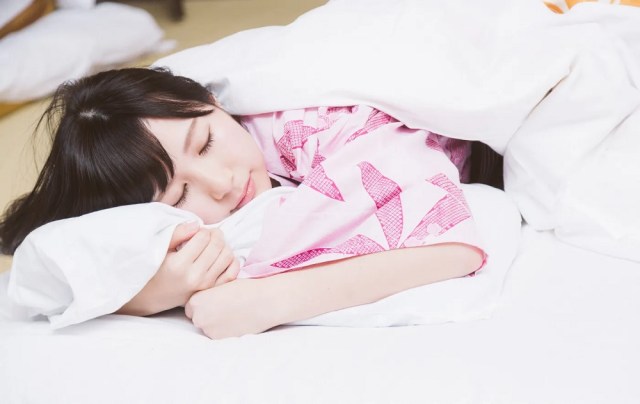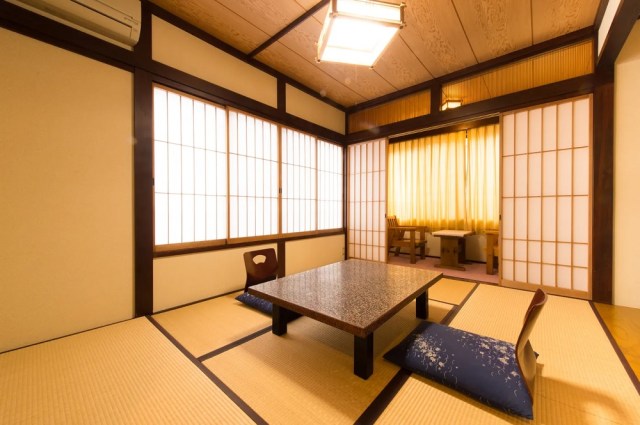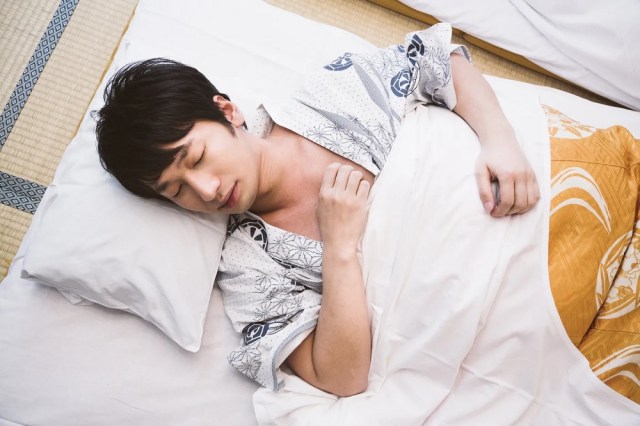Japanese etiquette lesson: Should you fold up your own futon when leaving a ryokan inn?

The sleeping mat has to get folded up before it gets put away, but who should do the folding?
Spending a night in a ryokan, or Japanese inn, is a great way to experience a part of the country’s traditional culture. Guestroom design is in keeping with classical aesthetics, with tatami reed floors, shoji sliding paper doors, and futon sleeping mats to slumber in.
But those sleeping mats also come with a Japanese etiquette puzzle: Is it good manners for you, the guest, to fold your futon up before you check out?
First off, let’s take a look at what a ryokan room typically looks like when you check in.

As you can see, the futons aren’t laid out yet. In order to maximize the floor space so guests can stretch out and relax, the futons are stored, folded up, inside the guestroom’s closet. Then, in the evening, typically after dinnertime, the maid will come in and lay out your futon for you.
The next morning, if you’re a considerate and conscientious guest, odds are you’ll be doing some basic straightening up before you check out, rather than leave a complete disaster area for the maid to deal with. Things like making sure you haven’t left wet towels lying on the floor, and grouping any empty drink containers together on the table, since in Japan plastic bottles and aluminum cans get sorted separately from other trash for recycling. Then you might look at the futon you were sleeping in and figure that since it’s going to be going back into the closet, folding it up yourself would be a nice thing to do.
This, it turns out though, is a mistake.
Instead of saving the maid the trouble of folding up your futon, what you’re really doing is giving the maid the additional task of unfolding your futon before having to fold it up once again. That’s because it’s standard practice for ryokan to check the futon for any forgotten guest property before folding them up and putting them away. Ryokan don’t typically have sofas, so any lounging around after dinner tends to happen in the futon, and it’s not unusual for someone to doze off while using their smartphone, reading a book, or playing games on a handheld system. Then the item slips out of their hands and into the sheets, where it goes unnoticed and forgotten until after they check out and leave town.
▼ Maybe this guy’s AirPods are hiding under the covers.

So if you fold up your own futon, the first thing the maid is going to have to do is unfold it to check the sheets. In addition, even if the pad is going to be folded up and put back in the closet, the cloth covering for the pad, called the shikibuton, gets stripped off and washed, as does the duvet cover. Both of those coverings are hard to pull off if the pad has been folded, so again, it’s easier for the maid if you just leave your futon unfolded when you check out.
Of course, when you wake up in the morning you might want to temporarily fold up your futon and get it out of the way to make repacking your suitcase and other pre-departure preparations easier to do. And if you should happen to check out with it still folded up, that’s not going to cause major offense, as even many Japanese travelers, with good but mistaken intentions, have a habit of folding up their futon before checkout. All the same, ryokan staff have said multiple times that “It’s OK to leave your futon unfolded when you check out,” which is about as close as Japan’s soft-touch traditional hospitality sector will come to outright saying “Please don’t fold it up,” so if you can remember to leave your futon unfolded when you leave the inn, your maid will be grateful.
Source: Maido News, Rurubu, J-Town Net
Top image: Pakutaso
Insert images: Pakutaso (1, 2)
● Want to hear about SoraNews24’s latest articles as soon as they’re published? Follow us on Facebook and Twitter!
Credit:

0 comments: